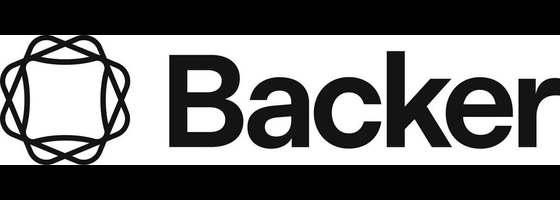Best Investing Apps 2024

Our evaluations and opinions are not influenced by our advertising relationships, but we may earn a commission from our partners’ links. This content is created by TIME Stamped, under TIME’s direction and produced in accordance with TIME’s editorial guidelines and overseen by TIME’s editorial staff. Learn more about it.
Investing is more accessible than ever, thanks in part to the growing number of user-friendly investing apps available—whether you're a self-directed investor or prefer an automated experience. The best investing apps offer a broad range of products, low fees, and an intuitive interface for buying, selling, and monitoring your investments on the go. With dozens of platforms to choose from, finding the best investing app can be tricky. To help you get started, here are our top picks for investing apps that meet the needs of everyday investors.
| Title | Fees | Min. deposit | Promotion |
|---|---|---|---|
J.P. Morgan Self Directed Investing | $0 stock & ETF trades; $0.65/contract options trades; $0 mutual funds trades | $0 | Get up to $700 when you open & fund an account with qualifying new money. Offer expires 1/23/2025. |
TradeStation | $0 stock & ETF trades; $0.60/contract options trades; $1.50/contract futures trades;$14.95 mutual fund trades | $0 | Cash bonuses starting at $150 |
M1 Finance | $3.00 | $100 for brokerage accounts and $500 for retirement accounts | |
Rocket Dollar | Silver plan: $360 one-time setup fee and $15/month; Gold plan: $600 one-time setup fee and $30/month | $0 | N/A |
RealtyMogul | 1% to 1.25% management fees (additional fees may apply); Income REIT has a 4.5% maximum fee, and Apartment Growth REIT has a 4.75% maximum fee | $5,000 | N/A |
Backer | $1.99 per contribution | N/A | N/A |
YieldStreet | 0% - 2% (varies by investment type) | $10,000 | N/A |
Ally Invest | $0 stock & ETF trades; $0.50/contract options trades; $0 mutual fund trades; $1 bond trades | $0 | $75 credit when you transfer at least $2,500 from another broker. |
Sofi Invest | $0 stock & ETF trades; 0/contract options trades; 1.25% crypto fee. | $0 | N/A |
Stash | $3 or $9 monthly fee | $0 | One free month |
Public App | $0 stock & ETF trades; 1.25% crypto fee | $0 | N/A |
Plynk Invest | $0 stock & ETF trades; $0 mutual fund trades; 0.50% crypto fee | $0 | $10 sign-up bonus |
Here are 15 investing apps that we consider among the best in 2024. Read through the list, and look for the apps that best fit your investment style, budget, and experience level.
J.P. Morgan Self-Directed Investing is designed for self-directed traders and investors. There are no account minimums, and you can buy and sell investments with zero commissions. The app connects to all Chase accounts, a handy feature if you're an existing Chase customer. Investors looking for a hands-off experience might consider J.P. Morgan Automated Investing.
TradeStation is widely considered a top trading platform. It's aimed at self-directed traders and investors who want advanced charting, technical analysis tools, and trade automation capabilities. TradeStation doesn't offer advice or recommendations, but you'll find ample tools and resources to help you research, trade, and manage your investments.
M1 Finance is a low-cost robo-advisor for investors who want a single app to manage their banking, borrowing, and investing needs. M1 Finance automatically rebalances your portfolio of ETFs and stocks, shifting money into underweight segments and out of overweight portions. There are no commissions or account management fees.
Rocket Dollar gives everyday investors a straightforward way to diversify their retirement accounts with alternative assets like angel investing, crowdfunding, and real estate. Rocket Dollar partners with custodians (including Digital Trust) and provides onboarding, technology, and other services to make opening and managing a self-directed IRA or solo 401(k) easy and efficient.
RealtyMogul provides accredited and nonaccredited access to two real estate investment trusts (REITs) and commercial real estate projects like apartment buildings, office complexes, and retail spaces. Members can use the platform to browse investment offerings, review detailed financials, and sign legal documents securely online. Once invested, you can track your investments on a well-designed member dashboard.
Backer calls itself the "simple, fast, fun way to 529." The platform helps you choose and invest in a tax-free 529 college savings plan. Then, it goes one step further by providing an easy way for your friends and family (aka your team of "backers") to chip in so you can grow the account faster. If you have an existing 529, you can still connect it to Backer so friends and family can join your team.
Yieldstreet lets investors participate in alternative investments like art, real estate, private equity, short-term notes, private credit, and more. The platform has tools to help you browse opportunities and make informed decisions, whether you're looking to generate income, grow your portfolio's value, or a combination of both. Once you invest, you can track your performance and earnings in the app.
Ally Invest offers a self-directed brokerage account with commission-free trades, a user-friendly trading platform, and tools to help you choose your next investments. There's no minimum deposit required to open an account (margin accounts have a $2,000 minimum). Ally Bank also offers personal banking, credit cards, mortgages, and more, so you can combine your investing and banking accounts in one easy-to-use app.
RELATED: Ally Bank Review
SoFi Invest lets you trade stocks and ETFs with no commissions and participate in upcoming IPOs before they trade on the public market. SoFi Invest offers a collection of fractional share stocks, and you can get started investing with as little as $5 (you'll need $2,000 for margin trading). You can opt for SoFi 's robo-advisor, which automates your investments and provides automatic rebalancing every quarter.
Stash has a great learning center with plenty of resources to help you stay current on money news and learn about investing. Self-directed traders can invest in stocks and ETFs with no commissions and diversify with crypto. If you prefer automated investing, Stash's Smart Portfolio robo-advisor can build a diversified portfolio based on your risk profile. Monthly plans cost $3 or $9.
Public offers an unusual lineup of assets, including stocks, Treasuries, ETFs, crypto, art and collectibles, and music royalties—with more alternative investments coming soon. The platform has its own social media feed where you can interact with a community of millions of investors to share ideas, insights, inspiration, and opportunities. You'll have access to live market analysis from industry experts and up to three years' of earnings calls, decks, and reports from publicly traded companies.
Plynk Invest is "a refreshingly easy way to invest" and aims to simplify investing for beginners. The mobile app is intuitive and user-friendly, and you'll find plenty of straightforward tips and how-tos to help you grow your investing knowledge. You can start investing with just $1, with no trading fees on stocks, ETFs, and mutual funds. Plynk also offers four cryptocurrencies (Bitcoin, Litecoin, Bitcoin Cash, and Ethereum)—with a minimum $0.50 fee if you're trading under $100 or a 0.50% fee for larger trades.
We rate investing apps on a scale of 1 to 5 stars across six categories that matter to average investors, including:
Top-rated investing apps have a good selection of investment offerings, low fees, an easy-to-use trading platform, a well-rounded collection of research tools, strong customer support, and excellent user ratings in the Apple App Store and Google Play. Brokers with limited product offerings, higher costs, basic trading technology, few tools, poor customer support, and low user ratings receive the lowest scores.
Consider the following factors to choose the best investment app for your situation:
Investing apps offer access to many different assets, from stocks and ETFs to fine art and real estate. Consider whether an app supports the investments you want to trade—and look elsewhere if it doesn't.
Most investing apps offer commission-free stock and ETF trades, but they may charge other fees, including a monthly fee or a management fee, depending on what's offered. Read the fine print to understand what you'll need to pay for.
Apps should be easy to use, with generous resources and tools to support your trading or investing style.
An app should have enough educational content and research amenities to help you make informed investment decisions.
An investment app can be an excellent way to manage and track your portfolio. While the process varies, here are some general guidelines for using an investment app:
Compare your options and choose the platform that suits your investment style and goals.
Once you choose an app, download it from the app store and sign up for an account. You may need to enter personal information, including your name, address, bank details, and Social Security number.
You'll have to put money in your account before you can start investing. Depending on the app, you can link your bank account, debit card, or credit card, to transfer funds.
You might already know the investments you want to trade. If you're undecided, explore your options in the app.
Select investments that align with your goals, risk tolerance, and time horizon. If available, consider using the app's robo-advisor to design a portfolio for you.
Track your portfolio, adjusting as needed. If you're using a robo-advisor, periodic rebalancing happens automatically.
Most investment apps have a $0 minimum to open an account. Of course, you'll need to fund your account before you can invest. How much money you need depends on the investments you choose and your investing goals and risk tolerance. Results are never guaranteed, so you should only invest what you can afford to lose.
Investing apps offer a variety of investment products. Stocks and ETFs are standard with most apps, while some provide access to bonds, mutual funds, options, cryptocurrencies, and even alternative assets like art and real estate.
Yes, you can lose money. The Securities Investor Protection Corporation (SIPC) protects up to $500,000 of securities and cash (for buying securities) held at SIPC-member brokerage firms. However, the coverage only kicks in if the brokerage firm fails and SIPC steps in. SIPC doesn't help if you sustain market losses. It is possible that you could lose some or all of the money you invested.
Some investing apps are free, while others charge fees ranging from about $3 to $9 per month. Remember that you might be on the hook for trading commissions or management fees, depending on the app and the products you trade.
If you’re a new investor, the best app will depend on your goals. J.P. Morgan Self-Directed Trading has an easy-to-use platform, no account minimums, and $0 stock, ETF, and mutual fund trades, making it a good option for beginner investors. M1 Finance is a worthy choice if you want to select from premade expert portfolios. And Acorns can be a wise choice if you want to invest spare change before moving to larger investments.
Robinhood is known for its intuitive platform and low fees, and many of its features are suitable for beginners. However, it has limited account and research tools compared with some investing apps. It also allows margin trading (where you borrow money from your broker), a risky strategy for beginners.
Investing apps can be an excellent way for beginners to learn about the financial markets and how to invest. They also offer a convenient way to research, trade, and monitor your investments on the go. Still, always consider whether an investing app suits your trading style, goals, and risk tolerance, to avoid taking on more risk than you intended.
The information presented here is created by TIME Stamped and overseen by TIME editorial staff. To learn more, see our About Us page.
















